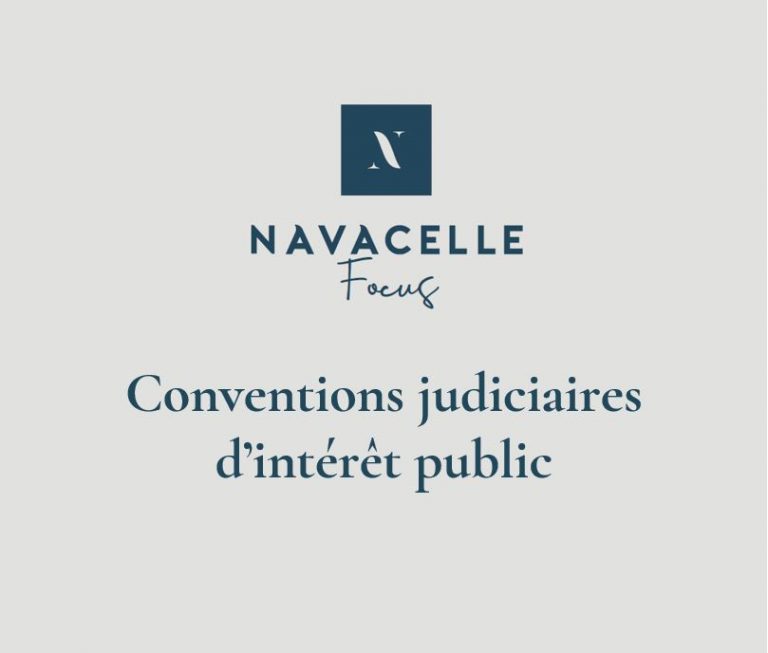In the context of the adoption of the Sapin II law and the implementation of new mechanisms to fight corruption, the recent decision of the Cour de cassation (the French Supreme Court) in the Oil for food Case I is a real landmark1.
In its decision dated March 14, 2018, the Cour de cassation ruled that the non bis in idem principle could not be used as a valid argument to avoid criminal proceedings in France, after having signed a guilty plea in the U.S.
Overview of the Oil for food Case I proceedings
In a case related to the U.N. Oil for food program which enabled Iraq to sell oil to purchase humanitarian supplies for its population from 1996 to 2003, the oil company Vitol was prosecuted for bribery allegations. With regards to these facts, on November 20, 2007, Vitol entered into a guilty-plea in the New-York state court for “grand larceny” under New-York criminal law2.
Facing prosecution in France for the same facts, the defendant claimed that the guilty plea protected the company from further prosecutions under the French non bis in idem principle.
On July 8, 2013, the Paris Criminal Court3 held that the plea-deal entered into with the United States authorities prevented prosecutions in France and that article 14(7) of the 1966 International Covenant on Civil and Political Rights (ICCPR)4 guaranteeing non bis in idem was not limited to “domestic” sentencing decisions but extended to multiple jurisdiction prosecutions wherever the events took place.
On February 26, 2016, the Paris Court of Appeal5 confirmed the application of article 14(7) of the ICCPR to cases where the decisions of foreign criminal courts relate to acts committed in France. The Court of appeal however interpreted the ICCPR to require not just the facts of the offense to be identical, but also that the State interest – as shown by the characterization of the offense – be the same. Noting that the legal status was not the same between the United States of America (grand larceny) and France (bribery of foreign public officials), the Paris Court of Appeal denied non bis in idem protection.
The decision of the Cour de Cassation dated March 14, 2018: excluding the application of the non bis in idem principle
The Cour de cassation firmly confirmed the exclusion of the application of the non bis in idem principle. The reasoning of the court, through a broad appreciation of the concept of territorial jurisdiction, aims at rejecting the application of this principle whenever the offenses prosecuted can fall within the scope of the French territorial jurisdiction.
Under French criminal law, the combination of Articles 113-66, 113-77 and 113-98 of the Criminal Code shows that the non bis in idem principle only applies to the prosecution of offenses committed abroad in their entirety. To exclude the application of this principle for the Vitol case, the Cour de cassation adopted a broad appreciation of the concept of territorial jurisdiction under Article 113-2 of the Criminal Code9.
The Cour de cassation held that “French Courts have jurisdiction over bribery of foreign officials when the commission of the offense has been decided and organized on French territory, where the amounts due for compensation were paid”10.
The analysis of the facts of the case shows how tiny the link was between France and the prosecuted facts. It is indeed the fact that one of the defendants had its “economic and financial interest center” in Paris and that in the same city, Vitol organized the commercialization of oil endowments and the payment of surcharges owed in relation to these endowments that triggered French jurisdiction.
This broad appreciation of the concept of territorial jurisdiction, which is the result of a developing jurisprudence11, proves that France is determined to participate in a more effective way to the fight against corruption, even for offenses which were committed at a time when the French legal framework had no extra-territorial reach.
The Cour de cassation went even further in its decision as it held that Article 4 of Protocol No. 7 to the European Convention on Human Rights and Article 14(7) of the International Covenant on Civil and Political Rights, providing the non bis in idem principle, “prevented double prosecutions for single acts” and “only applied where both proceedings were initiated on the territory of the same State”12.
With this reasoning, all the arguments pertaining to the identity of the facts, the identity of the legal definition of the facts, or the identity of the protected interests as developed by Vitol to support the application of the non bis in idem principle are worthless.
The European Court of Human Rights (ECHR) recently adopted a similar position in the Krombach case13. The applicant argued that the German decision to drop charges against him prevented France to prosecute him for the exact same facts. The ECHR held that the ne bis in idem principle set out by Article 4 of the 7th Protocole to the Convention did not have a transnational application. This supports the fact that a foreign decision does not automatically have res judicata in another State, which is the sense of the French Vitol decision.
Practical implications of the Vitol decision
The prior decision of the Paris Criminal Tribunal demonstrated a sort of lack of interest of the French authorities to prosecute bribery of foreign officials.
But the rising number of French companies convicted by the U.S. authorities14 and the amount of the fines inflicted to these companies has driven France to consider the issue from another angle and to find all ways possible to enhance its legislative framework to fight corruption.
As a result, the firm decision of the Cour de cassation shows the strong determination of the French authorities willing to compete with the U.S. on an equal footing. The U.S. authorities indeed do not give a res judicata effect to foreign decisions when they can have jurisdiction over potential misconducts15.
Alongside this exclusion of the non bis in idem, France recently developed its legal framework in the fight against corruption, with the enactment of the Sapin II law. The Conventions judiciaires d’intérêt public, (French-style DPA) recently signed by three companies in France are another example of the determination of the French authorities.
One can however wonder what impact the Vitol decision will have on prosecutions led by the U.S. authorities after the signature of such agreements with French authorities. As the penalties imposed on companies within the scope of these CJIP appear no to be efficient enough from an U.S. point of view (for instance there is no disgorgement of profits under the French DPA16) and the non bis in idem principle is not a protection for these companies, defendants are at greater risk to be convicted twice by both French and U.S. authorities.
Moreover, in line with the Vitol case, another decision of the French Supreme Court is of great interest regarding multiple jurisdiction prosecutions in cases of corruption. In the Jeffrey Tesler case17, the Cour de cassation once again rejected the argument drawn from the non bis in idem principle and held that as “the Court of appeal found that the facts, grounds for the prosecution, were committed even partially on French territory”, France could prosecute the offenses submitted and the foreign decision could not have a res judicata effect in France.
The most appealing point of this ruling is the fact that the Cour de cassation found that “the accused, whose appearance before the French criminal court is not regulated by the provisions of the agreement he entered into on March 11, 2011 with the Department of Criminal Affairs of the United States Department of Justice, is free not to incriminate himself and to exercise all his defense rights”.
In this way, companies and individuals signing plea agreements, namely with the U.S. authorities will not benefit from the protection of the non bis in idem principle under French jurisdiction, when at least part of the offense is committed in France.
Even further, this combination of decisions limits their defense rights as the guilty plea involves the waiving of the right to claim one’s innocence before other courts regarding the same offense.
Consequently, companies and individuals prosecuted in France after signing such agreements are in a somewhat inextricable situation, as they cannot properly defend themselves unless they violate the provisions of their pleas – the waiving of the right to claim one’s innocence – and they cannot benefit from the protection of the non bis in idem principle.
* * *
With this recent decision, the French Supreme Court showed a new effort in the enforcement of the anti-corruption provisions. Step by step, France is building a stronger legal framework in this matter. The use of the new tools implemented with the Sapin II law puts forward that the French judicial system is ready to tackle this new challenge.
The U.S. authorities still have a strong grip however over the prosecution of corruption related misconduct. Therefore, France needs to enhance its efforts and join forces with the U.S. within the scope of global settlement in order to develop a better enforcement in the fight against corruption and provide a real protection to defendants against double prosecutions. At last these recent developments will need to be taken into account by companies and individuals in the determination of their defense strategy.














